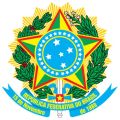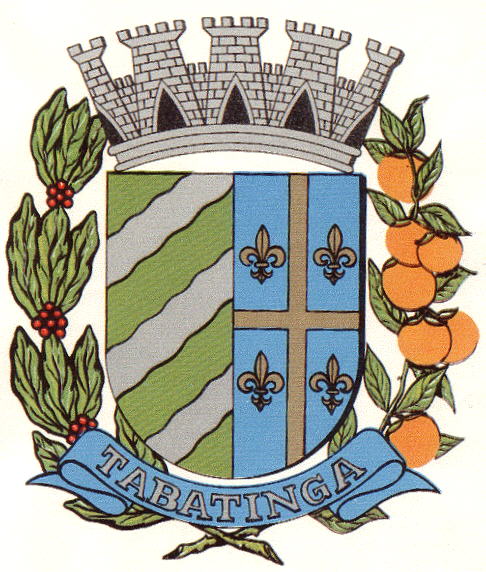Tabatinga (São Paulo): Difference between revisions
Jump to navigation
Jump to search
Knorrepoes (talk | contribs) m (Text replacement - "{{media}}↵" to "{{br1}} {{media1}} ") |
Knorrepoes (talk | contribs) m (Text replacement - "{| class="wikitable"↵|+Official blazon↵|-↵|'''Portuguese'''↵| (wanted)↵|-↵|'''English''' ↵| ↵|}" to "{| class="wikitable" |+Official blazon |- |'''Portuguese''' | blazon wanted |- |'''English''' | blazon wanted |}") |
||
| Line 11: | Line 11: | ||
|- | |- | ||
|'''Portuguese''' | |'''Portuguese''' | ||
| | | blazon wanted | ||
|- | |- | ||
|'''English''' | |'''English''' | ||
| | | blazon wanted | ||
|} | |} | ||
Revision as of 11:33, 7 April 2023
Brazil heraldry portal
This page is part of the Brazil heraldry portal |
Heraldry of the World |
|
Brazilian civic heraldry
|
Other Brazilian heraldry: |
TABATINGA
State : São Paulo
| Portuguese | blazon wanted |
| English | blazon wanted |
Origin/meaning
The arms were granted on February 23, 1973.
The three wavy bends in the first quarter represent the three streams which flow near the city; the cross and the fleur de lys in the second quarter evoke the hamlets of Nossa Senhora do Bom Conselho (Our Lady of the Good Counsel) and of Santa Cruz (Holy Cross) which were united, giving place to the city of Tabatinga.
The supporters show that coffee and orange are important agricultural products of the region.
The shield is surmounted by a mural crown appropriate to a city and a scroll below the shield bears the name of the city.
Literature : Image and background provided by Lauro Ribeiro Escobar, São Paulo.


